College of Science Faculty and Staff Awards - 2021
The College of Science at Utah State University is full of driven researchers, educators, and mentors. Each year the college recognizes several members who have gone above and beyond the norm to continue to make the college a place of increased merit and quality.
Shana Geffeney
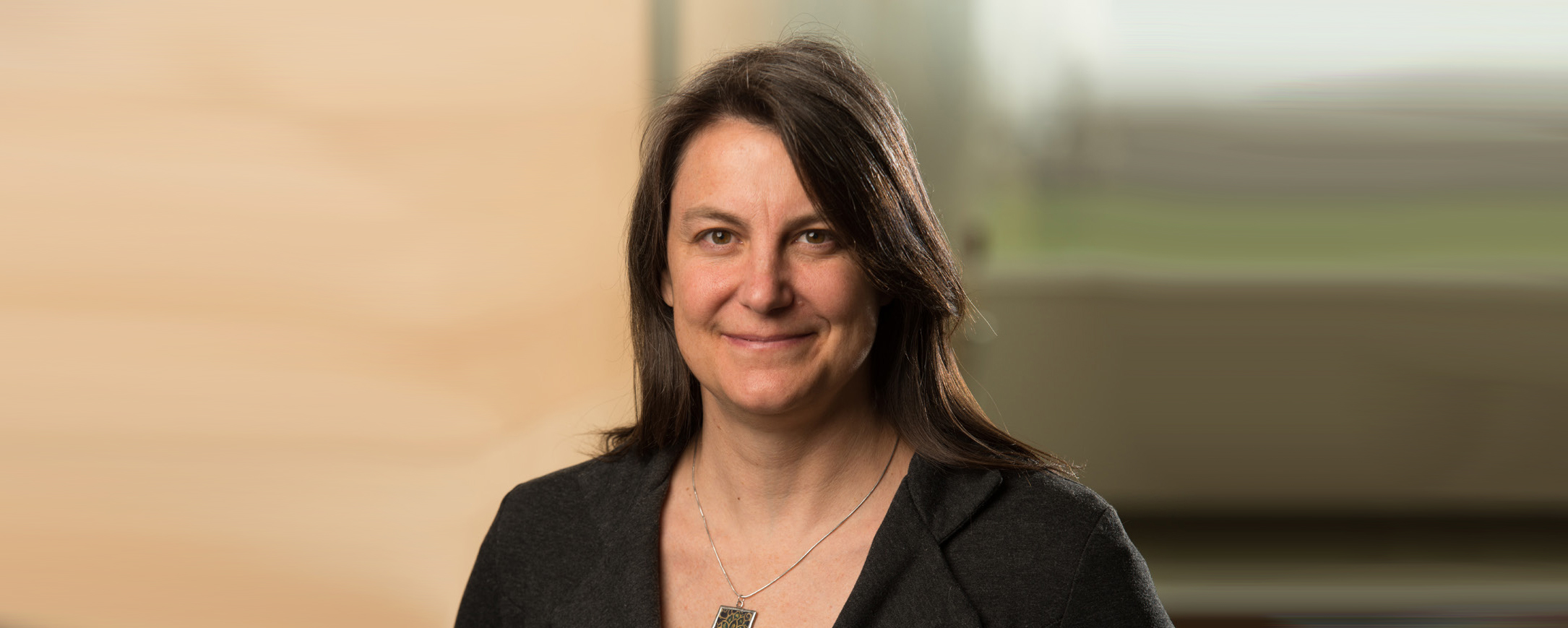
Undergraduate Faculty Mentor of the Year
Shana Geffeney, assistant professor in USU’s Department of Biology at USU Uintah Basin, understands undergraduate studies are a critical time for exploration. To encourage undergraduates to begin this process early, Geffeney started the Uintah Basin Research Internship. In this program, students spend a summer learning how to complete a research project and present their work to other scientists.
A Los Angeles native, Geffeney was always encouraged, by her family, to explore nature. While a major city might not seem like a good place to start investigating the natural world, Geffeney learned otherwise. She learned that, if you know the right place to look, Southern California has backyards teeming with salamanders and loquat trees.
Geffeney attended the University of California Santa Cruz to learn more about elephant seals and kelp forests. In an undergraduate seminar course, she discovered the pleasure of working with others to understand the natural world. She also had the opportunity to meet research scientists and discuss their work. Her undergraduate experiences inspired her to pursue graduate studies at the University of Oregon, where she earned a master’s degree, while studying nervous system development. During her time in Oregon, she became interested in how change evolves in the nervous system.
Geffeney continued her graduate studies at Utah State University, where she earned a doctorate. USU provided her an opportunity to investigate how animals evolve resistance to neurotoxins. As a postdoctoral fellow at Stanford University, she continued to study the function of sensory neurons.
J.R. Dennison
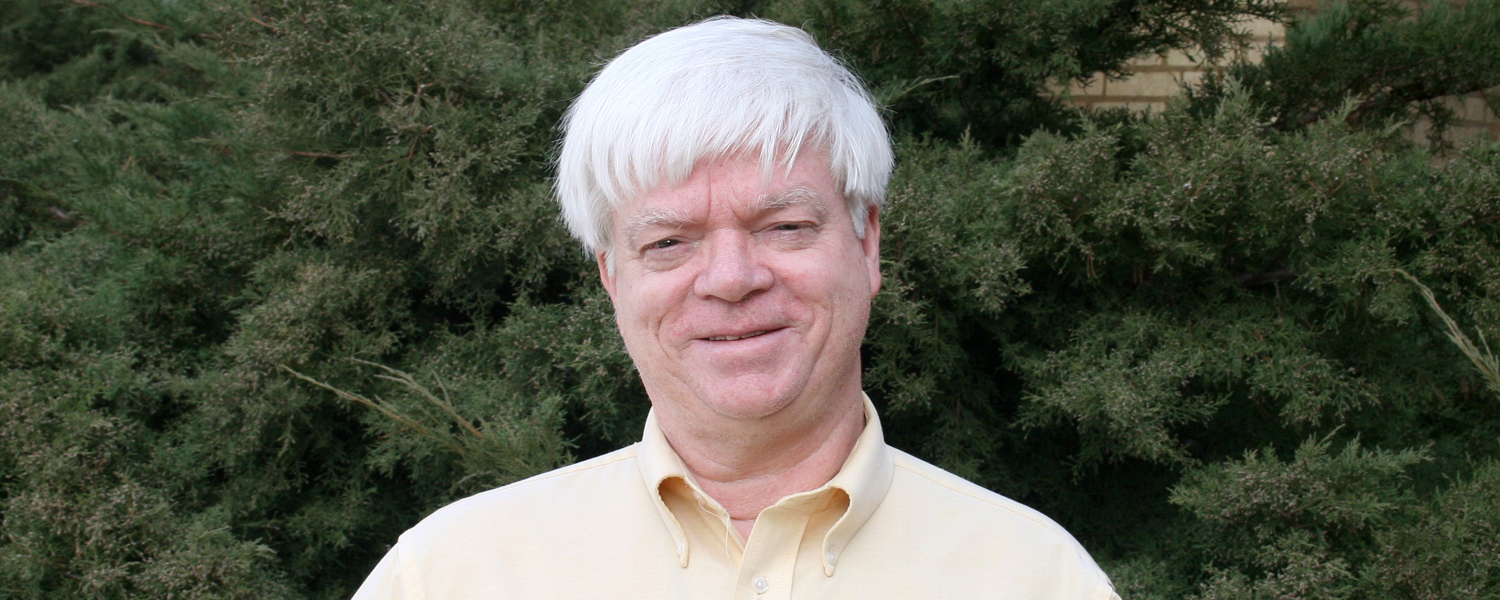
Graduate Mentor of the Year
After arriving at Utah State University in 1988, J.R. Dennison established the Materials Physics Group (MPG), where he merged USU’s traditional strengths of space research with his interests in disordered materials and electron scattering. Through this group, Dennison has mentored more than 40 graduate students and 140 undergraduate student researchers.
The MPG Space Environment Effects Materials test facility is one of the university’s leading research centers, where group members study both conducting and insulating aerospace materials in extreme plasma environments. The researchers perform state-of-the-art ground-based testing of electrical charging, discharge and electron transport properties of materials.
MPG has tested materials and components for dozens of government and commercial space missions, including returned materials flown on the International Space Station and NASA’s Long Duration Exposure Facility. The group’s collaborations with NASA, the U.S. Air Force, the U.S. Department of Energy and aerospace companies have been primarily motivated by concerns of spacecraft charging. This phenomenon is caused by extreme plasma environment interactions, radiation modification and damage of materials.
MPG’s research has expanded to include applications for high-voltage, direct-current power and transmission lines, plasma systems, semiconductor/metal-oxide interfaces and nanodielectrics.
Over the last three decades, MPG scientists and students have collaborated on 160 publications, 500 presentations, and numerous major scientific reports Anderson databases.
Dennison completed a bachelor’s degree in physics from Appalachian State University in 1979 and earned a master’s degree in 1983 and a doctoral degree in 1985, both in physics, from Virginia Polytechnic Institute and State University (Virginia Tech).
Mike Christiansen
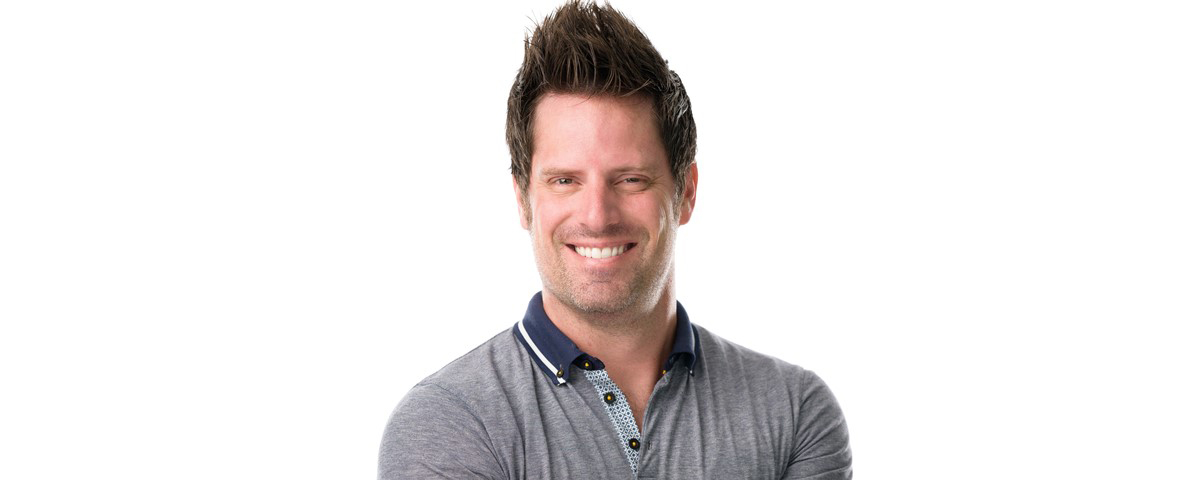
Faculty Teacher of the Year
Born and raised in North Logan, Utah, Mike Christiansen graduated from Sky View High School in 1997. He earned a bachelor’s degree in chemistry from Utah State in 2004, and completed a PhD in organic chemistry from Brigham Young University in 2010. After graduation, he joined Colorado State University as a postdoctoral fellow. In 2011, he joined the USU faculty at the university’s Uintah Basin campus in Vernal, where he resides with his wife and four children.
When students and alumni describe Christiansen, associate professor of organic chemistry and chemistry education, they recount his patience and methodical skill in explaining complex concepts in engaging lectures.
“Organic chemistry is known as a formidable challenge for pre-medical students and those who don’t succeed with it will not advance toward the next step of medical school applications,” says a former student of Christiansen. “It can be a cut-throat environment, yet Dr. Christiansen always promoted a supportive, collaborative classroom. While he challenged us, he also gave us the support needed to master critical concepts.”
Christiansen has taught chemistry courses across all of USU’s undergraduate offerings and consistently receives outstanding evaluations from students.
Teaching through in-person, IVC broadcast and online formats, Christiansen makes use of varied technologies to provide students with ready access to a vast library of learning materials. He has created nearly 750 online YouTube chemistry tutorials, which have garnered more than five million views. In addition, Christiansen is a prolific writer and actively publishes in the area of chemistry teaching. He recently published the online textbook, Organic Chemistry Unleashed, which covers concepts in both written and video form and has a question-and-answer bank with more than 1,200 answer videos.
Christiansen leads the department in publishing papers in teaching pedagogy, with 13-peer reviewed papers and book chapters in chemical education.
Beyond the classroom, Christiansen mentors aspiring researchers, and many of his students have earned awards, including the university’s undergraduate research grants and “College of Science Undergraduate Researcher of the Year.”
More than a few alumni, who are now professionals in health care, research and education, confess they often return to Christiansen’s lectures to refresh and hone their chemistry skills.
Says one alum, “As I have progressed to a career in medicine, Dr. Christiansen has been willing to offer support the whole time. He has shown any student he has ever had will always be his student and he is willing to do whatever he can to help them be successful.”
Another alum, now a pediatric dentist, admits he almost gave up on his career aspirations because he struggled with undergraduate exams.
“Dr. Christiansen took my aside after class and urged me not to give up,” he says. “That he knew my aspirations, with so many students in his classes, and took the time to provide encouragement really impressed me. I hold the title ‘doctor’ because of him.”
Christiansen has an infectious passion for teaching that infuses his students with enthusiasm for chemistry. He often says, “Teaching isn’t just what I do. It’s who I am.”
Karen Kapheim
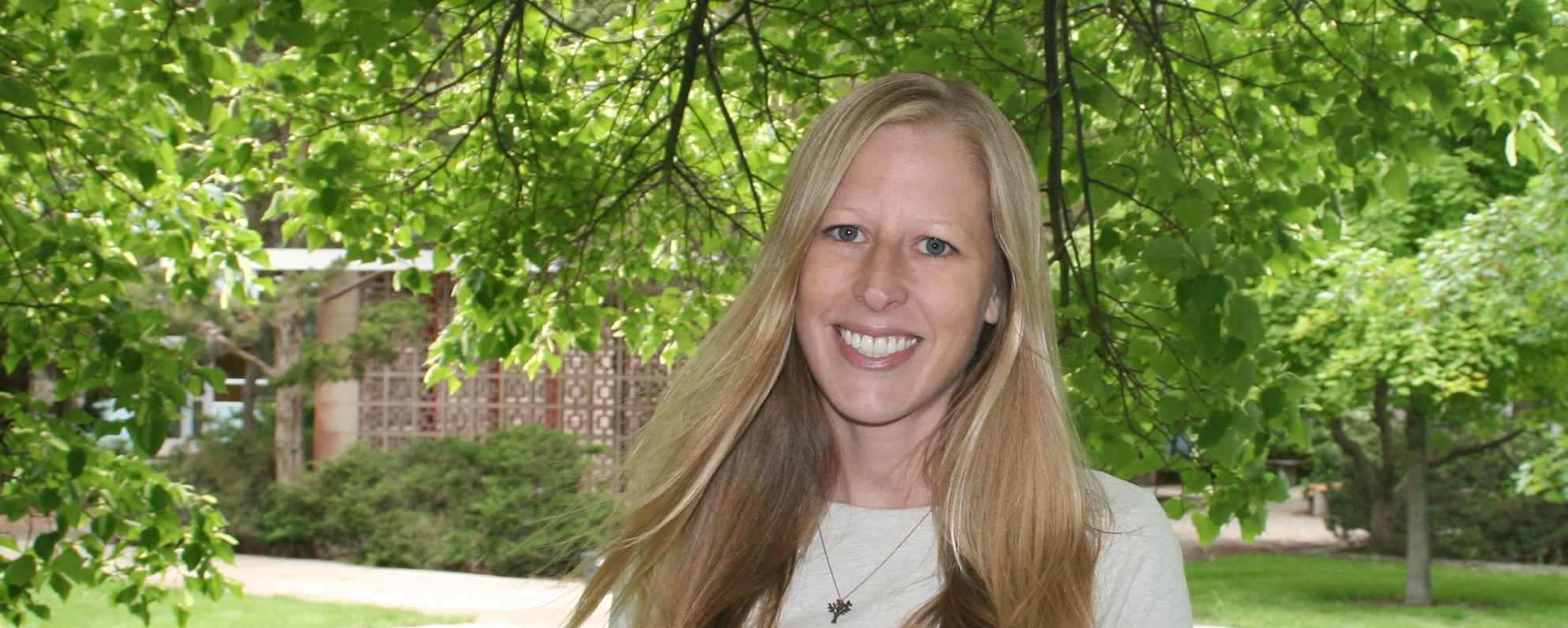
Faculty Researcher of the Year
Dr. Karen Kapheim’s research asks the question “Why do organisms cooperate?” A cornerstone of evolutionary biology is that traits that shorten lifespan or decrease reproduction should not persist. Yet some of the most abundant creatures on Earth (e.g., ants, bees) have achieved unparalleled ecological success through extreme cooperation, while most individuals are sterile and sacrifice their lives to protect their colonies.
Dr. Kapheim, assistant professor in the Department of Biology and USU Ecology Center, along with her students, has been investigating how and why this behavior evolves by studying the social lives of bees.
Though Dr. Kapheim has always been interested in the evolution of social behavior, she wasn’t always interested in bees. She got her start as an undergraduate research assistant at Michigan State University, where she studied hyena behavior as a field assistant in Kenya. She subsequently studied foxes, hyraxes, and coatis before discovering the wonder and beauty of bees, while doing field work at the Smithsonian Tropical Research Institute in Panama.
Dr. Kapheim completed her Ph.D. at UCLA and postdoctoral research at University of Illinois, where she merged behavioral ecology with evolutionary genomics. She started her lab at USU in 2014, and now investigates the developmental and genomic mechanisms underlying behavior to better understand how it evolves.
David Peak
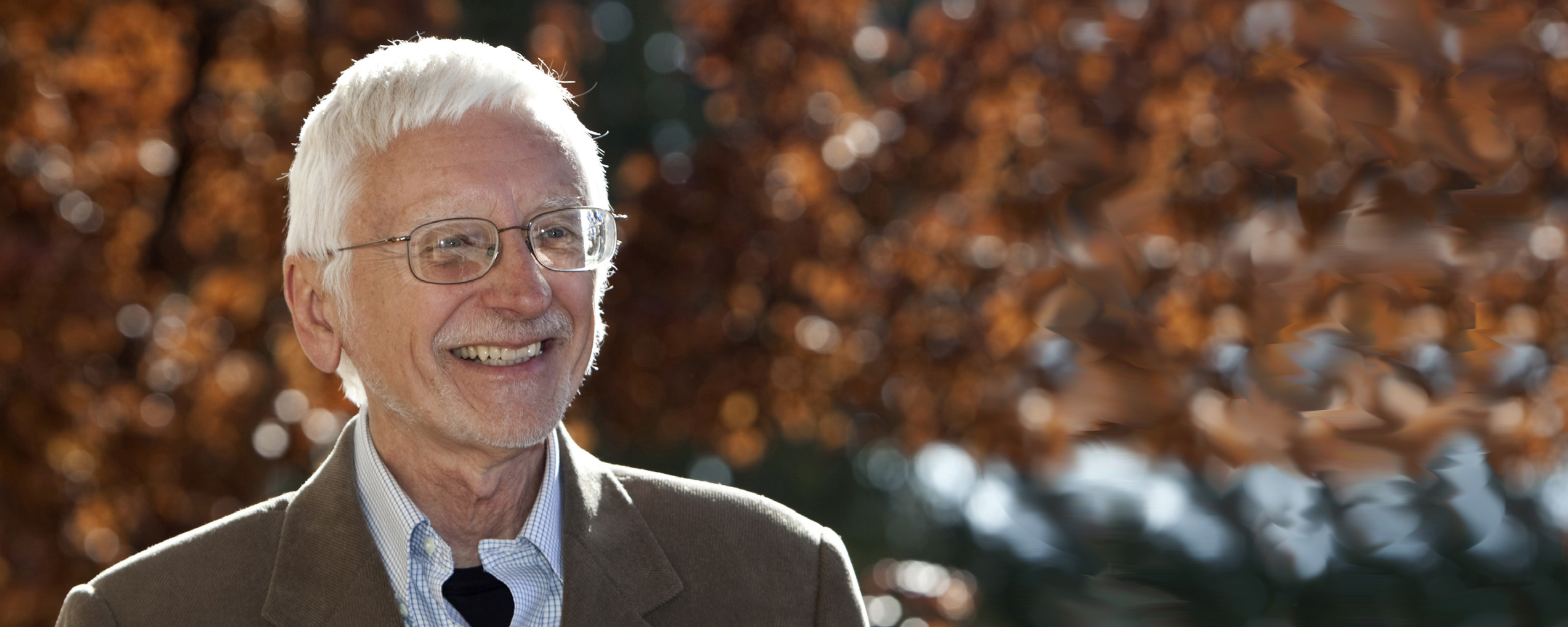
Faculty University Service
Professor of Physics David Peak, and his wife, Professor of Social Work Terry Peak, joined the USU faculty in 1994. They have subsequently supported, through gifts and endowments, the education and research of several hundred Aggies. They initiated the Peak Undergraduate Research Fellowship p\Program, and have provided funding for the annual Peak Prize for recognizing outstanding undergraduate researchers in each college throughout the university.
Before coming to Logan, David was the Frank and Marie Louise Bailey Professor of Physics at Union College in upstate New York. He has also held faculty positions at SUNY Albany and the University of Richmond, and research positions at Princeton University, Argonne National Laboratory, and NASA-Goddard.
Since 2006, David has mentored more than 40 Goldwater Scholars—helping place USU in the top 25 of the 600 universities that have had at least one Scholar in that time. In recognition of these efforts he received the national Council on Undergraduate Research-Goldwater Scholars Faculty Mentor Award in 2018.
David’s other national recognitions include an NSF Early Career Award, the American Physical Society Prize for Research with Undergraduates, and a Carnegie Foundation Professor of the Year Award. At USU, he has been a University Outstanding Faculty Advisor, a Last Lecturer, and a Science Unwrapped presenter.
Joanie Hevel
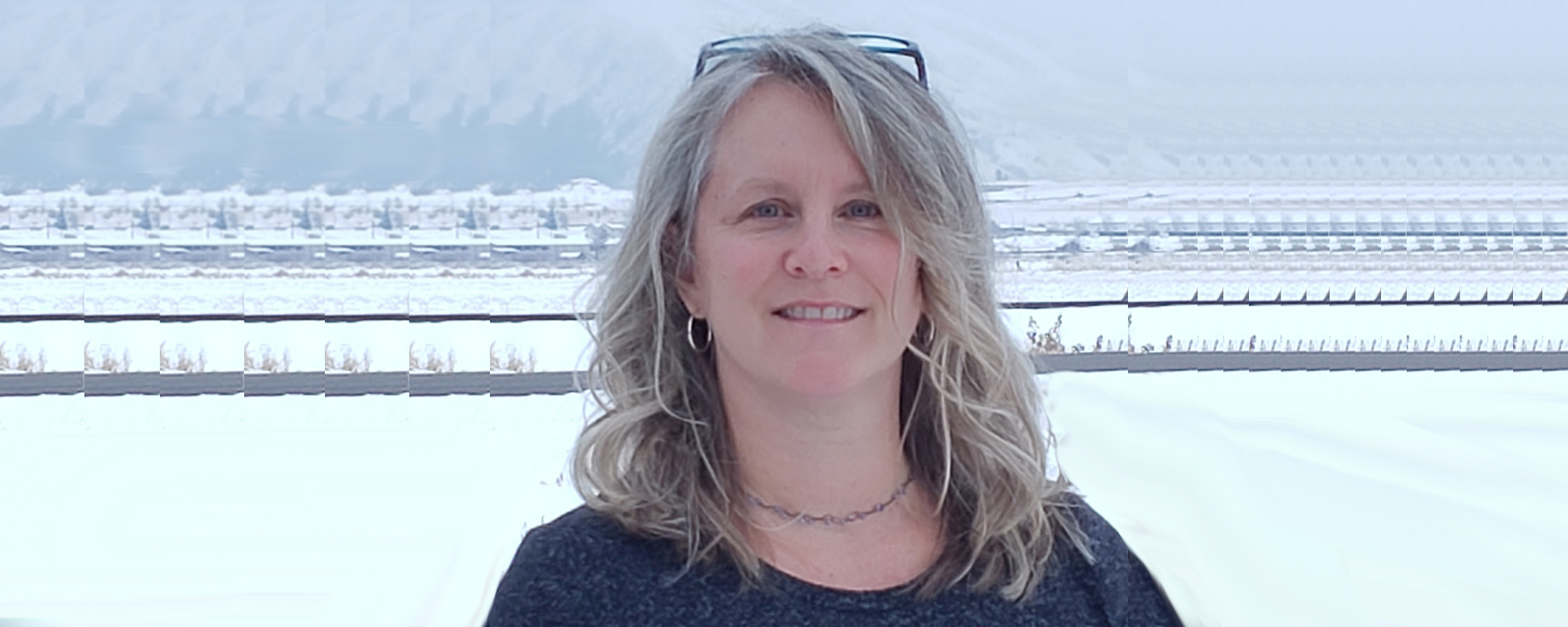
Undergraduate Research Mentor of the Year
Dr. Joan “Joanie” Hevel received her bachelor’s degree in chemistry from Lebanon Valley College. It was at Lebanon Valley College, where she “caught the research bug,” while participating in undergraduate research for several summers.
Dr. Hevel pursued graduate studies at the University of Michigan, where she earned a PhD in medicinal chemistry. She completed postdoctoral work at the University of California, Berkeley, as a National Institutes of Health Fellow, and then moved several times as a postdoctoral associate and instructor with her husband, who was a U.S. Marine helicopter pilot.
Dr. Hevel arrived at Utah State as an assistant professor in 2003, and was promoted to associate professor in 2010. Upon arrival, Dr. Hevel actively recruited undergraduates into her research program to help investigate a family of PRMT proteins that are critical for human cell health. More than 30 undergraduates have participated as “protein mechanics” in her laboratory, learning scientific writing, as well as technical, presentation and critical thinking skills along the way.
Undergraduate researchers mentored by Dr. Hevel have won numerous presentation awards, scholarships, grants and fellowships, including a Barry Goldwater Scholarship, numerous USU Undergraduate Research and Creative Opportunities grants and several American Heart Association Research Fellowships.

